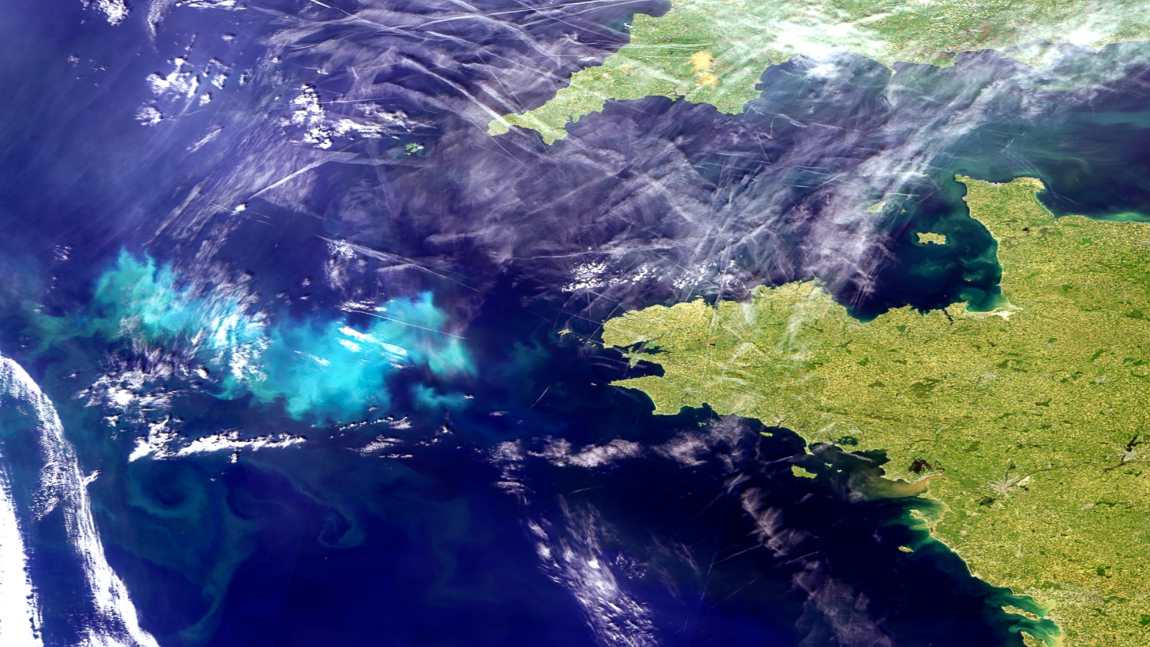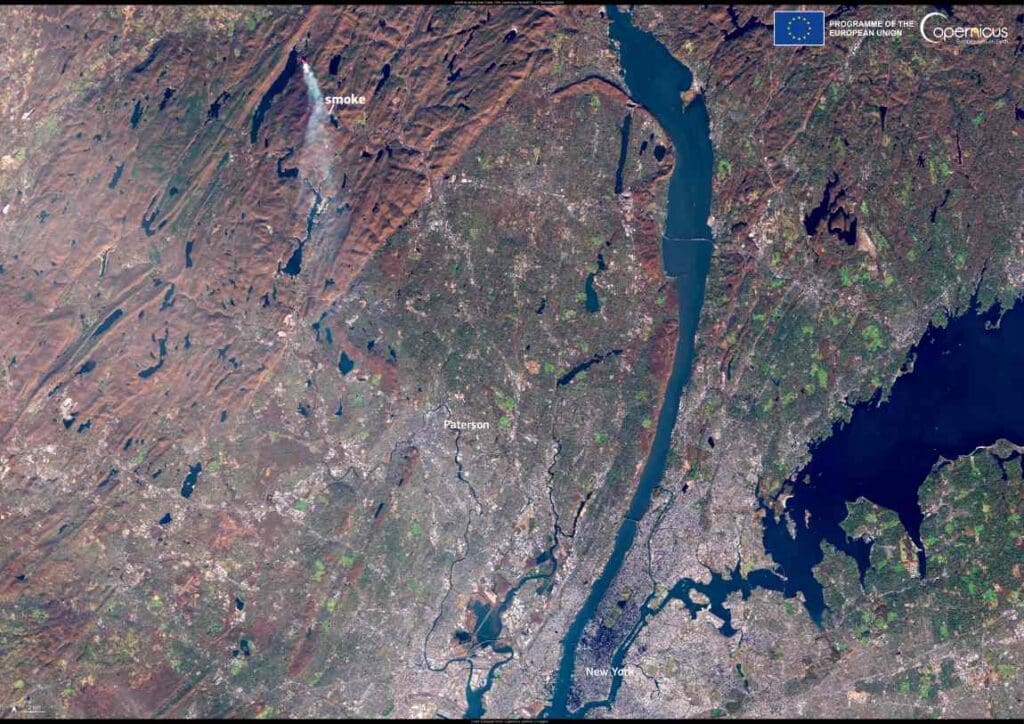DARMSTADT, Germany | EUMETSAT
People with an interest in our oceans – from academics to businesspeople through to representatives from navies and weather services – are meeting in Lisbon, Portugal, for a deep dive into satellite data and its uses.
Europe’s meteorological satellite agency, EUMETSAT, the European Commission, the European Space Agency, the European Centre for Medium-Range Weather Forecasts and Mercator Ocean International are hosting the two-day event starting today.
The aim is to showcase how data from the Copernicus Sentinel satellites are used to benefit agencies and businesses with an interest in the marine environment, to connect data users with different skills and expertise, and to receive feedback on how to better meet the needs of existing and potential data users.
“What happens in our oceans influences everyone’s lives by impacting our weather, climate, food production, transport, economies, and well-being in general, but it is impossible to fully observe with in-situ sensors,” EUMETSAT Director-General Phil Evans said. “We need satellites to gain a more complete picture. Many sectors of our economies and our governments are becoming more reliant on data for decision making, particularly as a result of climate change.”
“It’s a long journey from the acquisition of a byte of data on a satellite to what is actually happening in an aquaculture farm, to give one example, and the aim of this event to is show the range of data and information available, how it can be used, to connect people across this value chain, and, importantly, to hear feedback on any gaps or necessary improvements.”
EUMETSAT’s Copernicus Programme Manager Lieven Bydekerke said the uses of data from the Sentinel satellites go well beyond what was imaginable when they were designed.
“The data streams from the Copernicus Sentinels are a game-changer for marine science and operational communities,” Bydekerke said. “They provide high-quality and continuous information about the dynamics, health, and diversity of our oceans.”
Mercator Ocean International Head of Markets and Services Laurence Crosnier said the organisation was excited to highlight the role of the Copernicus Marine Service and the EU’s Ocean Digital Twin in the development of marine applications during the Marine user days.
“This event is a unique opportunity for the marine community to engage with Copernicus Marine data, exchange insights, and shape the future of ocean services for larger societal benefit,” Crosnier said.
“As we look ahead to this collaborative gathering, we invite all stakeholders to join us in harnessing the power of marine data for a sustainable and resilient future.”
The event will feature a variety of presentations, networking events, and workshops covering topics such as:
- The European marine data landscape and the blue economy
- The European Union’s Copernicus programme and its relevance to the marine community
- Marine ecosystems and living resources
- Marine data for ship routing, fishers, climate reporting and renewable energy
***
About EUMETSAT
EUMETSAT, Europe’s meteorological satellite agency, monitors the weather and climate from space. Based in Darmstadt, Germany, EUMETSAT provides its 30 member states with meteorological imagery and data that are essential for keeping their communities safe and for the benefit of critical sectors of their economies.
EUMETSAT’s 30 member states are: Austria, Belgium, Bulgaria, Croatia, Czech Republic, Denmark, Estonia, Finland, France, Germany, Greece, Hungary, Iceland, Ireland, Italy, Latvia, Lithuania, Luxembourg, the Netherlands, Norway, Poland, Portugal, Romania, Slovakia, Slovenia, Spain, Sweden, Switzerland, Türkiye and the United Kingdom.
Article Source:
Press Release/Material by EUMETSAT
Featured image credit: ©EUMETSAT 2024




